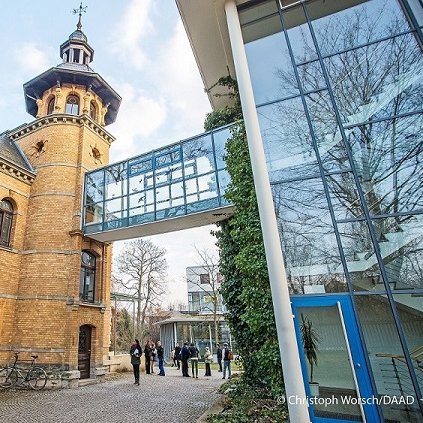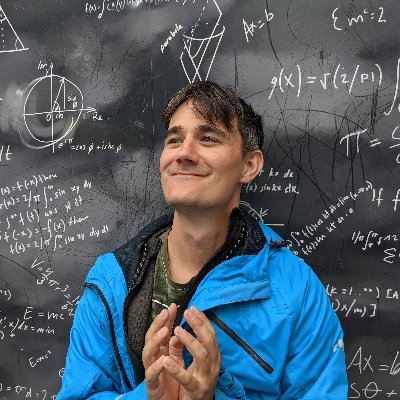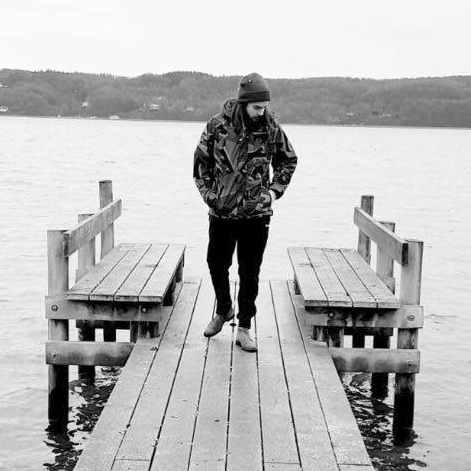
Stephan Schiffels
@stschiff
Followers
2K
Following
4K
Media
67
Statuses
2K
Research Group Leader @MPI_EVA_Leipzig. Population Geneticist. On Mastodon @[email protected]
Leipzig, Germany
Joined January 2009
Morgen auf der langen Nacht der Wissenschaften gibt's von mir um 22:00 Uhr einen Vortrag mit dem Titel "Gene und Geschichte – Wie alte DNA unsere bewegte Vergangenheit erzählt". Herzliche Einladung ans @MPI_EVA_Leipzig
Am 20. Juni ist es soweit: Das @MPI_EVA_Leipzig lädt zur Langen Nacht der Wissenschaften ein! 😊 Ab 18 Uhr erwarten Euch spannende Vorträge & eine bunte Vielfalt an Mitmachstationen rund um #Menschheitsgeschichte 🧬🧪 & #Primatenevolution. 🐒 Das Programm: https://t.co/XSwHTA55rN
0
0
2
Am 20. Juni ist es soweit: Das @MPI_EVA_Leipzig lädt zur Langen Nacht der Wissenschaften ein! 😊 Ab 18 Uhr erwarten Euch spannende Vorträge & eine bunte Vielfalt an Mitmachstationen rund um #Menschheitsgeschichte 🧬🧪 & #Primatenevolution. 🐒 Das Programm: https://t.co/XSwHTA55rN
0
3
3
Our #PhD students are excited to hear @stschiff speak about "Spatial inference of population structure and prehistoric human mobility from ancient and modern #genomes" tomorrow for our #PopGen Seminar series. Full schedule and streaming signup at
popgen-vienna.at
0
1
2
Call for #PhD students open! Apply by 14th of May to start your research career in #evolution #genetics in beautiful #Vienna among a fun international and interdisciplinary crowd of peers #evolVienna #bioinformatics #bigdata #Drosophila #adaptation #popgen please RT
0
9
13
I'm thrilled that our new article was published today in @AJHGNews. It was an excellent collaboration with @cschlebu, Yoro Diallo, Vaclav Janousek, and Viktor Cerny. Population history and admixture of the Fulani people from the Sahel #Africa #OpenAccess
https://t.co/gWOlMchdPm
3
17
54
Here is a nice News piece ( https://t.co/UIk0OnnPZW) by @spoke32 about the work, with a quote from @JoGretzing. 6/6
science.org
2000-year-old graves suggest women wielded as much—and sometimes more—power than men in some Celtic tribes
0
0
4
What I get from this is that we should all be more data-mining of published data. There are still hidden gems in there, and as the data is growing faster than people can analyze, the rate of unpublished gems may be growing! 5/6
1
3
6
Turns out the British Iron Age really stands out with its low MT-diversity, being almost uncannily consistent with Roman and other historic writers about Celtic tribes in Britain and their powerful women. Amazing! 4/6
1
0
2
Motivated by this striking discovery, the authors simply check mitochondrial diversity across centuries and in all of Europe from published data, and found a pattern that was there all along but nobody looked for it: 3/6
1
0
4
... with women, daughters and granddaughters all buried at the site. This is the opposite pattern of what we’ve seen in other large-pedigree studies from the Neolithic or later, which are all patrilocal. 2/6
1
0
1
Fascinating study came out two weeks ago by @_larsporsena and Colleagues on a South British Iron Age burial site with an extraordinary matrilocal relatedness pattern ( https://t.co/2z8DZsldbk)... 1/6
nature.com
Nature - An analysis of ancient mitochondrial and nuclear DNA shows evidence of matrilocal communities in Iron Age Britain.
1
10
28
Excellent book review on "The trouble with ancient DNA" by my colleague @KathrinNaegele:
science.org
Narratives that invoke ancient DNA must be crafted with care, argues an archaeologist
1
5
28
Nice article in National Geographics (in German) on our findings of dynastic relationships among Celtic elite burials, featuring Angela Mötsch from my group:
nationalgeographic.de
Inspirierende Geschichten, atemberaubende Abenteuer und brillante Fotografien der NATIONAL GEOGRAPHIC Fotografen und Autoren lassen Sie nicht mehr los. Kommen Sie mit auf die große Reise der Experten...
0
0
6
Our Cell Genomics preview “Double or Nothing – Ancient Duplications in the Amylase Locus Drove Human Adaptation” covering Yilmaz F. (@feyza__yilmaz) et al., Science 2024 and Bolognini D. (@davidebolo93) et al., Nature 2024 is now out. https://t.co/VC2RMaJLMN
0
19
71
Our work, which shows statistical issues with the previous claim of a severe ancient bottleneck in the ancestry of African populations, has been selected as a Featured article in @GeneticsGSA
https://t.co/gzX2NNqah4 Great work by @YunDeng5, co-advised by @ras_nielsen and me 1/2
academic.oup.com
Hu et al. (Science, 2023) recently inferred a severe ancient bottleneck around 900 thousand years (kya) ago in African ancestry but found no similar eviden
2
13
49
"Ancient DNA reveals family ties" is named on of the top 10 Science Break-throughs in 2024 by Science ( https://t.co/Bmwi3e1iWk). Our work on early Celtic princely burials and their discovered close kinship gets mentioned, too!
science.org
1
9
30
The Max Planck Institute of Geoanthropology is pleased to announce that Dr. Patrick Roberts @palaeotropics will join its board of directors, heading the new Department of Coevolution of Land Use and Urbanisation
gea.mpg.de
1
9
74
This work about the severe African bottleneck hypothesis is now published on Genetics at: https://t.co/QiyZKue68C. More details can be found at our previous thread below:
academic.oup.com
Hu et al. (Science, 2023) recently inferred a severe ancient bottleneck around 900 thousand years (kya) ago in African ancestry but found no similar eviden
It was recently reported that Africans experienced a sharp, severe bottleneck around 900kya and that this signal is absent in non-Africans. Here, we present evidence to show why this is likely a statistical artifact: @ras_nielsen @yun_s_song
https://t.co/wH6p5VJrBl 1/4
0
14
35
👏👏 @arevsumer! Contains our IBD analysis led by @YileiHuang317: Multiple really long 20cm++ IBD segments link the two record 45ky-old sequenced modern human sites Zlatý kůň (Czechia) and Ranis (Germany). Showing they are closely related - within few generations. 😮😮 (1/3)
Oldest modern human #genomes sequenced. These seven early #Europeans belonged to a small, isolated group that left no present-day descendants. Study @Nature led by @arevsumer, Kay Prüfer, Johannes Krause @MPI_EVA_Leipzig. https://t.co/thySPSDXyR & https://t.co/IDwbcYjkkF
1
12
48
Out today in @sciencemagazine, we've journeyed into our shared history with Neandertals by analyzing over 300 present-day and ancient modern humans, including 59 individuals who lived between 2,000 and 45,000 years ago. https://t.co/V9OBe4VTjC
science.org
Gene flow from Neanderthals has shaped genetic and phenotypic variation in modern humans. We generated a catalog of Neanderthal ancestry segments in more than 300 genomes spanning the past 50,000...
3
41
112
















